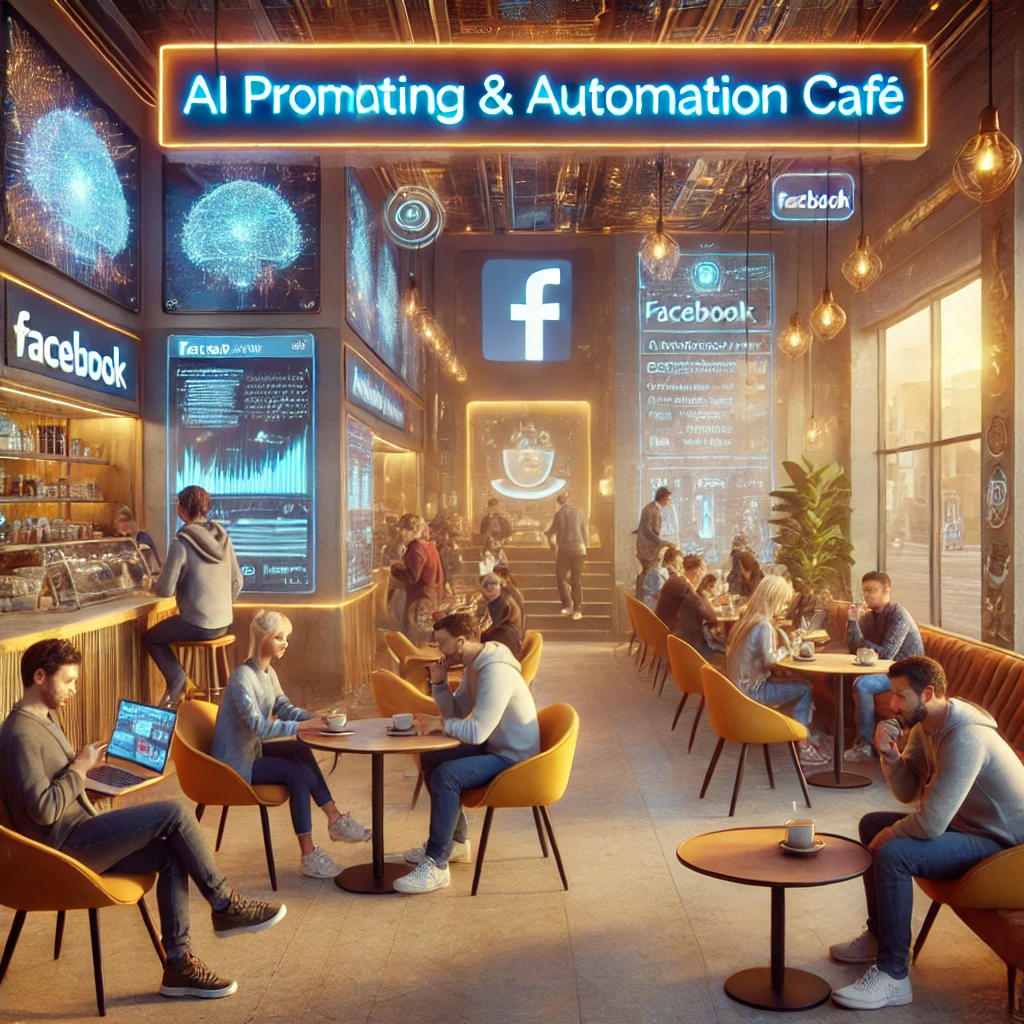Introduction: The New Era of Digital Marketing
In the dynamic world of digital marketing, where consumer preferences shift in real-time and competition intensifies daily, staying ahead means adopting cutting-edge technologies. One such groundbreaking innovation is Artificial Intelligence (AI). More than just a buzzword, AI is becoming a transformative force, revolutionizing how businesses approach marketing—from customer segmentation to campaign personalization.
This shift is supported by growing research, including the latest findings from the scholarly article “The Impact of Artificial Intelligence on Digital Marketing Strategies” which underscores how businesses are leveraging AI to enhance efficiency, boost engagement, and improve ROI.
What Makes AI a Game-Changer in Digital Marketing?
AI is not just automating tasks—it’s amplifying the strategic potential of data across every stage of the digital marketing funnel. Here’s how:
- Real-time data analysis: AI algorithms can analyze massive sets of consumer behavior data to identify trends within seconds.
- Hyper-personalization: Machine learning models segment audiences and deliver uniquely tailored content.
- Predictive analytics: AI can forecast future buying behaviors, helping marketers anticipate needs instead of reacting to them.
- Efficiency and automation: Routine tasks like social media posting, customer service, and email automation are all streamlined using AI.
These capabilities are reshaping traditional approaches, driving strategic innovation across the digital marketing landscape.
1. Personalization at Scale
One of AI’s most powerful contributions to digital marketing is the ability to deliver personalized content to a massive audience. Traditionally, personalization required manual segmentation and content creation. Today, AI algorithms analyze behavior, preferences, demographics, and interaction patterns to deliver unique messages to each user.
Dynamic Content Generation
AI-powered tools like natural language processing (NLP) and AI writing assistants can create tailored marketing messages that resonate with individual users—whether it’s on an email campaign, website, or mobile app.
- Email marketing: Platforms like Mailchimp and ActiveCampaign now use AI to optimize subject lines, send-times, and message content for better engagement.
- Product recommendations: E-commerce platforms use AI to suggest products based on past behavior, increasing the likelihood of conversion.
- Landing page adaptation: AI dynamically changes landing page layouts and copy to match the visitor’s browsing history and preferences.
Customer Journey Mapping
AI tools map out real-time customer journeys, identifying the best times and channels to reach a prospect with the right message. This improves not only user experience but also long-term customer retention.
2. Enhanced Predictive Analytics
AI enhances predictive analytics by enabling marketers to make data-driven decisions with far more accuracy. Drawing insights from customer behavior, buying history, browsing patterns, and social signals, AI can forecast what’s next.
Sales Forecasting and Lead Scoring
Machine learning models analyze existing CRM data to predict which leads are most likely to convert. This minimizes wasted efforts and sharpens campaign targeting.
Churn Prediction and Customer Lifetime Value (CLV)
AI can predict which customers are at risk of leaving and suggest proactive steps for retention. Additionally, it estimates the lifetime value of customers, allowing marketers to allocate resources effectively.
3. Smarter Ad Targeting and Media Buying
Programmatic advertising, powered by AI, is revolutionizing ad placement. It uses real-time bidding and automated ad buying powered by AI algorithms to place ads more effectively, reducing costs and improving CTRs (Click Through Rates).
Audience Segmentation Using AI
Traditional segmentation methods relied heavily on manual demographic data. AI, however, dives deeper with psychographic and behavioral segmentation techniques. This level of targeting ensures ads are presented to users who are most likely to engage.
Ad Copy Optimization
Tools like Copy.ai and Jasper use GPT-powered engines to generate highly effective ad copy based on a few prompts. AI even analyzes existing ad performance and improves headlines and descriptions for better outcomes.
4. Conversational Marketing and Chatbots
The rise of AI-driven chatbots has completely transformed customer service and lead generation. Today’s top-performing brands utilize smart chatbots and conversational AI to engage users at any hour.
24/7 Customer Interaction
AI-enabled chatbots offer prompt, intelligent responses round the clock—handling inquiries, recommending products, processing transactions, and gathering feedback without human intervention.
NLP for Sentiment Analysis
Advanced Natural Language Processing allows chatbots to understand user sentiment and provide emotionally intelligent responses, improving customer relationships and satisfaction.
5. Content Strategy and Creation
AI is making content marketing faster, smarter, and more customer-centric. Given the increasing demand for fresh, relevant content, AI tools can now suggest topics, optimize for SEO, and even craft articles.
SEO Optimization
AI tools like MarketMuse, SurferSEO, and Clearscope can analyze thousands of top-performing pages and recommend keywords, header structures, and content length. They help marketers:
- Identify keyword opportunities based on search intent analysis.
- Find backlink gaps and optimize off-page SEO strategies.
- Generate metadata to boost SERP appearance.
AI for Visual Content
AI tools like Canva and Adobe Sensei enhance visual content creation through automated design templates, image cropping, and brand-consistent color schemes.
6. Social Media Intelligence
AI empowers marketers to understand and respond to social media trends in real time. Social listening tools powered by machine learning track brand mentions, hashtags, and sentiment across platforms.
Trend Analysis and Real-Time Engagement
AI helps marketers understand which topics are trending or fading, allowing for swift strategy pivots. Predictive algorithms also suggest optimal posting times and content formats for better engagement.
Influencer Identification and Monitoring
AI tools evaluate influencer performance to recommend collaborations that offer the highest ROI, taking follower authenticity, engagement rates, and content alignment into account.
Challenges in AI-Driven Marketing
While AI offers tremendous benefits, integrating it into digital marketing is not without its challenges.
- Data Privacy Concerns: As AI relies heavily on personal data, ensuring GDPR and data compliance is crucial.
- Implementation Costs: Advanced AI tools can be expensive, making them less accessible for small businesses.
- Skill Gaps: AI-powered marketing requires specialized knowledge which many companies currently lack.
- Algorithm Bias: Faulty data inputs can lead to biased outcomes, harming both reputation and customer trust.
Addressing these challenges requires strategic planning, proper training, and ethical oversight.
Looking Ahead: The Future of AI in Digital Marketing
AI’s role in digital marketing is still evolving. As algorithms grow more sophisticated, marketers can expect:
- Deeper, more meaningful customer interactions.
- Fully automated campaign journeys guided by AI.
- Integration of AI with AR/VR to create immersive brand experiences.
- Voice search optimization as virtual assistants become mainstream.
Companies that embrace AI not as a tool, but as a strategic partner, are the ones most likely to thrive in this new marketing frontier.
Conclusion
The digital marketing landscape is being reshaped by Artificial Intelligence in ways we’re only beginning to understand. From personalized content creation to smart ad targeting, from predictive analytics to intelligent chatbots, AI is setting a new standard for efficiency, relevance, and engagement.
For brands looking to stay competitive, embracing AI is not optional—it’s essential. By integrating AI-driven solutions now, marketers can better connect with audiences, outpace competitors, and drive unparalleled growth.
As the technology continues to evolve, one thing is clear: artificial intelligence isn’t just revolutionizing digital marketing strategies—it’s redefining them.






